Death Becomes Her: Why The Best Bruce Willis Performance Ever Deserved Better
Bruce Willis gave his best performance ever in the dark, hilarious comedy Death Becomes Her, and it has to be seen to be understood.
This article is more than 2 years old
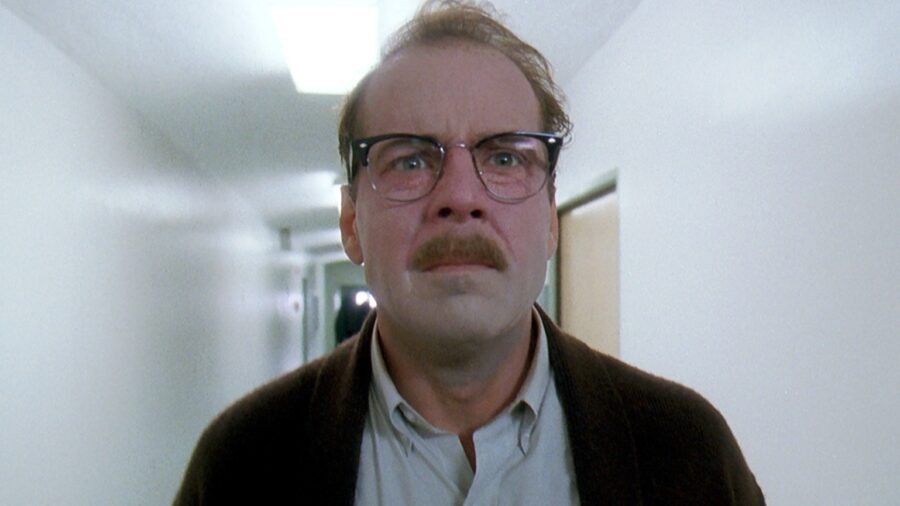
The abrupt retirement of Bruce Willis earlier this year made us realize just how hard-working he was in his prime. After all, the man has 146 acting credits on his IMDb profile, eight of them from 2022 alone. But with those kinds of numbers, not all of his movies could be winners (or even be released in theaters). However, his high-profile failures sometimes obscured the more subtle gems around them, and it is about time that his single greatest performance gets its due. While Bruce Willis will probably go down in cinematic history as one of the formative action stars of the 1980s, his true talent was comic and it is only fitting that his best role was in the extraordinary dark comedy Death Becomes Her.
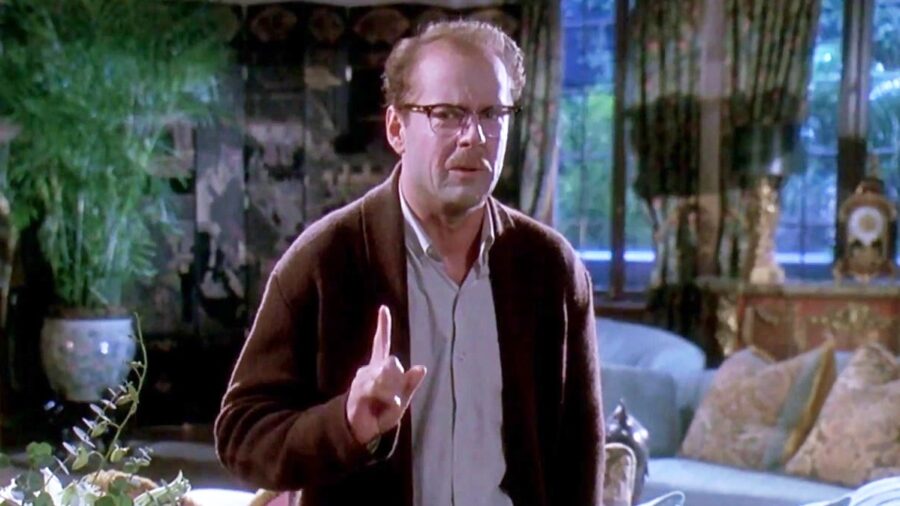
Death Becomes Her stars Bruce Willis as Dr. Ernest Menville, the absolute negative image of every role he was known for up until then. In this movie, Bruce Willis is not a streetwise, wise-cracking New York City cop. He is not a tough-talking Los Angeles private eye. He’s not even the voice of a charming baby. In a word, Bruce Willis in Death Becomes Her is a loser. The real central stars of the movie are Meryl Streep and Goldie Hawn, who play lifelong frenemies who have used Bruce Willis as a pawn in their spiteful competition and utterly destroyed him in the process.
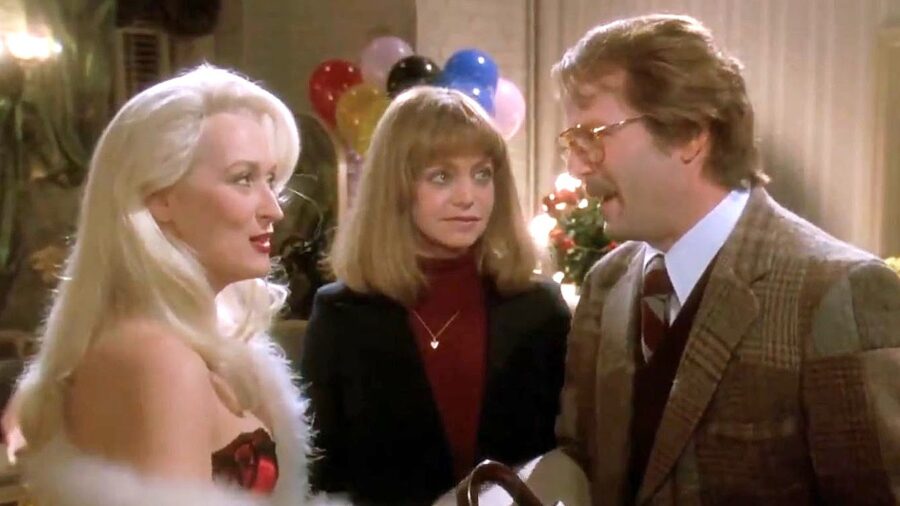
The film begins with Meryl Streep’s Madeline Ashton seducing Bruce Willis from his fiance Helen Sharp (Goldie Hawn), only to flash forward years to Hawn seducing him right back. For all of their (literally) endless competition over Bruce Willis, one of the funniest running gags is how little both of the women think of him as a person and how immediately willing they are to give him up as soon as they have talked things through. Also, both Meryl Streep and Goldie Hawn are terrified of aging and end up taking a magical potion from a breathtaking Isabella Rossellini that makes them immortal, but not unkillable.
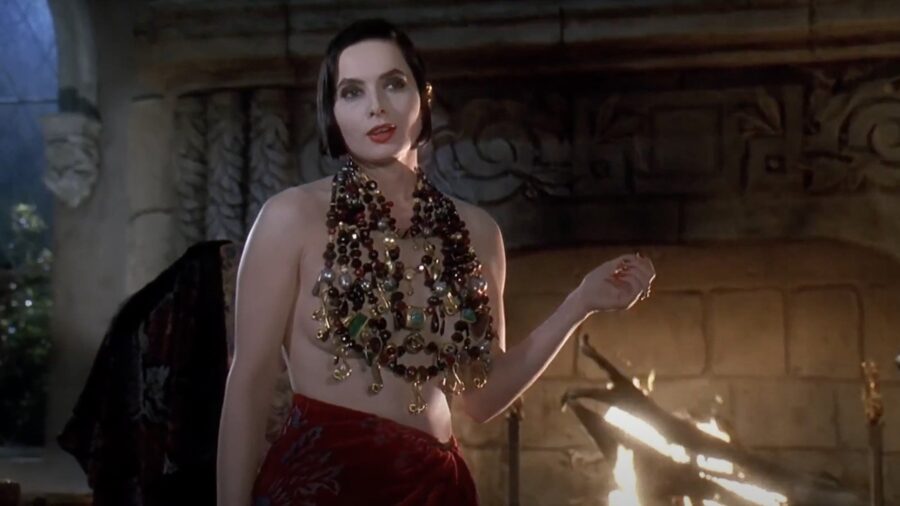
After the hilarious set of time jumps within the opening of the movie, we see Bruce Willis as he is for the majority of the movie: a balding, disheveled alcoholic without social skills or self-respect. If that were how Bruce Willis played the entirety of the movie, it would already be an amusing self-satire. However, then he makes the transformation to a wild-eyed Universal Pictures mad scientist, screaming about miracles while lightning flashes around him, and finally to an oddly sympathetic hero, albeit one with some real lapses in moral judgment.
The darkest joke of Death Becomes Her is how morally bankrupt its central trio is. While Meryl Streep and Goldie Hawn are so consumed with high school drama that they will literally fight through eternity about it, Bruce Willis is no better. He is apparently always willing to leave his romantic partner for whoever comes along that seems a little bit shinier, and he also is pretty ready to commit murder at one point. However, everyone in the central trio plans to kill everyone else at some point, so it’s not like he is worse either.
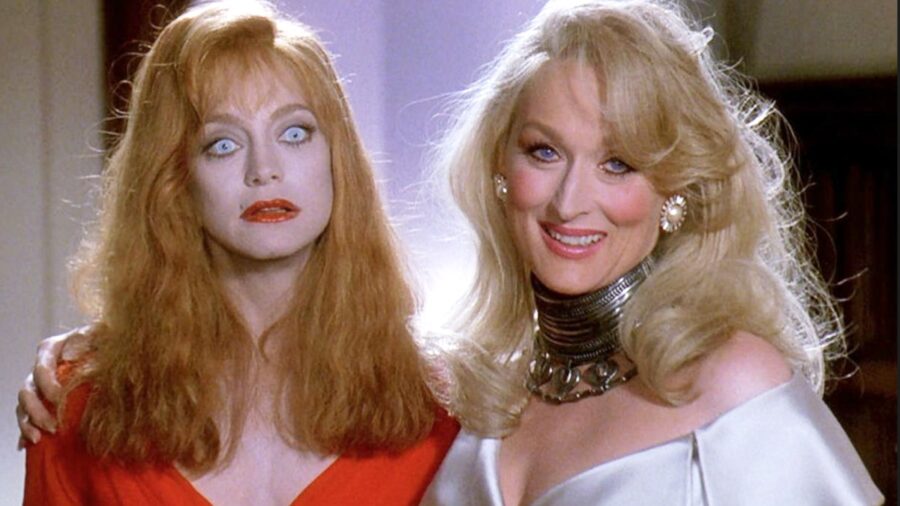
Death Becomes Her is the very definition of a cult movie, beloved by few and ignored by most. When it was released in 1992, it was a commercial success, but could not compete with the box office numbers of Disney’s Aladdin, Kevin Costner and Whitney Houston in The Bodyguard, and the erotic thrills of Basic Instinct. It was received with lukewarm reviews by critics, who generally found its satire hollow; it has aged much better in retroactive praise, ironically enough for the subject matter.
All of this is remarkable when you consider the kind of firepower Death Becomes Her was working with. Along with Bruce Willis, one of the biggest actors in the world, it co-starred Meryl Streep, already considered one of the greatest actresses of the 20th century, and Goldie Hawn, one of the most popular and charming comedic actresses ever. It was directed by Robert Zemeckis, who had just completed the mega-blockbuster Back to the Future trilogy and the groundbreaking special effects of Who Framed Roger Rabbit. It was co-written by David Koepp, who would go on to co-write enormous hits like Jurassic Park and Spider-Man. It boasted cinematography by Dean Cundey, one of the most acclaimed directors of photography ever, and truly grotesque, Academy Award-winning visual effects.
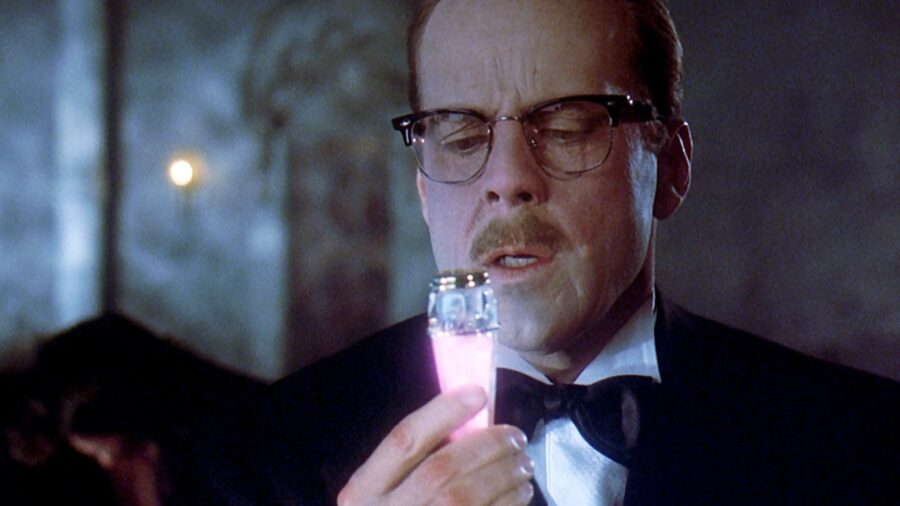
But everyone in this movie is overshadowed by Bruce Willis, who gives a career-best performance somewhere between “unhinged” and “utterly pathetic.” He is a Marx Brother caught up in a neo-noir. He is an ordinary guy caught up in a supernatural love triangle, whose every utterance is treated with disdain by everyone else. He is a schmo who, at one point, literally walks out of a dramatic deadly battle scene because he is aware he is not actually that necessary there. It is a performance like nothing else in his career and deserves far better.










